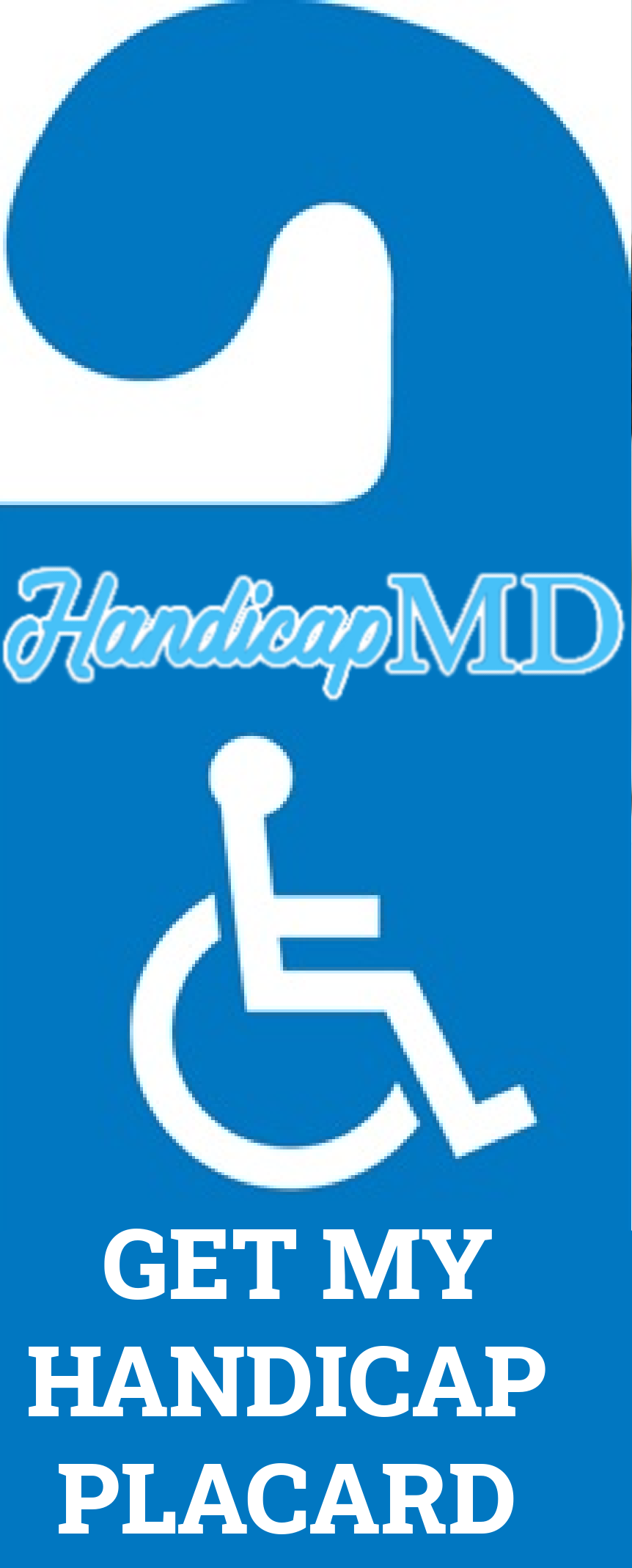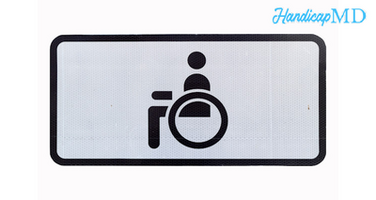
HSMV Handicap Parking Placard in Jacksonville
Handicap Parking Placard in Jacksonville: If you're looking to obtain a handicap placard in Jacksonville, HandicapMD.com simplifies the process.
Start with a telehealth consultation with one of our licensed medical professionals, where we will evaluate your condition to ensure it qualifies. Once confirmed, we will complete the necessary sections of the application for you.
You'll then receive the completed forms to finish and submit to the appropriate authorities. With HandicapMD.com, the entire process is streamlined and convenient, allowing you to focus on what matters most.
The common questions include, how do you apply for the Handicap Parking Placard in Jacksonville? The handicap parking program offers modern, easy-to-navigate, and user-friendly accessible lots.
However, when you’re still new in the state, you’ll have many questions about this program. How often does the law require you to renew the Florida disabled permit? What is the cost of getting a disabled permit or sticker in Florida?
What Conditions Qualifies You For the Disabled Parking Permit
Before qualifying for the disabled parking permit, the law requires you to have at least one of the following qualifying conditions:
To be eligible for a disabled permit in Florida, you must have a medical condition that significantly impacts your mobility or ability to navigate public spaces. Florida law outlines specific qualifying conditions that must be verified by a licensed medical professional. Below is an expanded list of the conditions that make you eligible for a disabled parking permit:
Inability to Walk 200 Feet Without Resting
If you have a physical disability that limits your ability to walk more than 200 feet without needing to stop and rest, you may qualify. This condition is often due to various health issues, including severe arthritis, muscle weakness, or neurological conditions that impact stamina and endurance.Use of Assistive Devices for Walking
Individuals who require the use of assistive devices such as a cane, crutch, brace, prosthetic device, walker, or wheelchair also qualify. Additionally, if you rely on another person to assist you in walking due to a disability, you may be eligible. This criterion ensures that individuals who face mobility challenges due to balance issues, amputations, or other conditions are accommodated.Permanent or Partial Wheelchair Use
Those who use a wheelchair on a permanent or partial basis automatically qualify for a disabled permit. This includes individuals who are fully dependent on a wheelchair for mobility and those who may need it only part-time due to temporary or progressive conditions that impair walking.Severe Lung Disease or Respiratory Conditions
Individuals suffering from lung disease or respiratory conditions may qualify if their breathing capacity is significantly reduced. Specifically, this applies if your forced expiratory volume (FEV1) is less than one liter when measured using spirometry, or if your arterial oxygen level is below 60 mmHg even when breathing normal room air. These criteria indicate a substantial impairment of lung function that limits mobility.Dependence on Portable Oxygen
If you require the use of a portable oxygen tank due to chronic respiratory conditions or other medical issues, you qualify for a disabled permit. This includes individuals with conditions like COPD (chronic obstructive pulmonary disease) or emphysema who need supplemental oxygen to breathe effectively.Cardiac Conditions Classified as Class III or IV by the American Heart Association (AHA)
Cardiac conditions that result in functional limitations as classified by the American Heart Association in Class III or IV are eligible for a disabled parking permit. These classifications refer to individuals who experience significant limitations in physical activity due to heart conditions, with symptoms such as fatigue, shortness of breath, or chest pain occurring even during minimal activity.- Class III: Individuals experience noticeable limitations in physical activity. Even moderate activities like walking or climbing stairs cause fatigue, palpitations, or discomfort.
- Class IV: Individuals experience symptoms even at rest, and any physical activity may worsen the condition, leading to severe limitations in daily life.
Legal or Partial Blindness
Those who are legally blind or partially blind are also eligible for a disabled permit. Legal blindness is typically defined as having 20/200 vision or worse in the better eye with corrective lenses, or a visual field of 20 degrees or less. This condition poses significant challenges in safely navigating public spaces, justifying the need for accessible accommodations.Severe Walking Limitations Due to Neurological, Orthopedic, or Arthritic Conditions
Individuals with severe walking limitations caused by neurological disorders (such as multiple sclerosis or Parkinson's disease), orthopedic conditions (such as bone fractures or spinal issues), or arthritic conditions (such as rheumatoid arthritis) also qualify. These conditions may cause pain, imbalance, muscle weakness, or stiffness that significantly limits mobility.
How to Qualify for a Disabled Parking Permit
To apply for a disabled permit in Jacksonville, you will need to have one or more of these qualifying conditions verified by a licensed medical provider. After the physician confirms your eligibility, they will complete the necessary forms, which you can then submit to the Florida Department of Highway Safety and Motor Vehicles (FLHSMV) for processing. Once approved, you’ll be issued a disabled placard or license plate, depending on your specific needs.
Types of Disabled Parking Permits Valid
Florida issues drivers living with the disabled with four different disabled parking permits.
Florida provides four distinct types of disabled parking permits for individuals living with disabilities. Each permit is designed to meet the specific needs of residents based on the nature and duration of their disability. Below are the valid disabled parking permits issued in the state:
Permanent Disabled License Plates
These are issued to individuals with long-term disabilities. The permanent license plate is attached to the vehicle and allows for accessible parking in designated handicapped spots. This type of permit is ideal for those with chronic or permanent mobility impairments or other qualifying disabilities.Temporary Disabled Parking Placards
Temporary placards are available for individuals with a temporary disability or condition that affects their mobility. These placards are valid for up to six months, and extensions can be requested if needed. For example, someone recovering from surgery or an injury may benefit from a temporary placard.Permanent Disabled Parking Placards
Permanent placards are designed for individuals with long-term disabilities but who may not require a specialized license plate. These placards are portable and can be used in any vehicle, allowing flexibility for people who may not always drive the same car. They must be renewed every four years, but they come with no renewal fee.Disabled Veteran License Plates
Disabled veteran plates are available for veterans who have disabilities directly related to their military service. These plates offer the same parking privileges as other disabled permits, and they recognize the service and sacrifices made by veterans.
Out-of-State and International Handicap Parking Permit Validity
Florida recognizes disabled parking permits issued by other U.S. states and foreign regions. This means that if you're traveling to Florida from another state or country, you can use your existing handicap permit without having to apply for a new one. Florida honors permits from the following countries:
- European Union (EU)
- United Kingdom (UK)
- Mexico
- Canada
- New Zealand
- Japan
- Australia
This reciprocity ensures that visitors with disabilities can access appropriate parking accommodations while in the state.
The city offers the same handicapped parking permit application process similar to Florida's. Before applying for the handicap sticker, you must have a qualified medical physician verify your qualifying conditions. After the verification, you can submit the application form to the Department of Highway Safety and Motor Vehicle in Florida.
How to Get Your Handicap Placard in Jacksonville
Before getting your handicap placard in Florida, you must have a telehealth consultation and evaluation with a qualified and licensed medical physician. After verifying your qualifying condition, the medical physicians will complete the required sections on the application forms and hand them over to you to finish and submit them.
How to Obtain Your Handicap Placard in Jacksonville with HandicapMD.com
At HandicapMD.com, the process of getting your handicap placard in Jacksonville starts with a telehealth consultation with one of our licensed physicians. During the consultation, we’ll assess your medical condition to determine if you meet the eligibility criteria. Once verified, our doctors will complete the necessary sections of your application. Afterward, you’ll receive the forms to finalize and submit, making the process easy and convenient.
Rules and regulations of the Disabled Parking in Jacksonville
The state has accessible parking regulations and rules similar to most states and jurisdictions in the United States.
● When having a valid permit in the state, you can park your vehicle in any designated accessible space. Furthermore, you can park for approximately four hours in on-street metered parking spaces at no cost.
● The law requires you to hang the disabled permit on your car’s rear-view when parking.
● It'll be wise to remove the permit from the car's rear mirror to prevent obstructions and enhance safe driving when towing or driving.
● You must update or renew your card, as it’s against the law to have an expired permit.
● When having the , it’s against the law to lend or share with someone else
● It’s illegal to park your vehicle in striped access aisles.
● The law prohibits anyone from altering disabled permits.
Which Medical Personnel can Verify Your Disabled Parking Permit Application
The Florida disabled parking program only allows a state-qualified and certified physician to verify your condition and application. These medical physicians include:
● Podiatrist
● Nurse practitioner
● Licensed physician
● Physician’s assistant
● Osteopath
● Chiropractor
● Optometrist
What is the Cost of Getting your Disabled Parking Permit?
The Florida authorities offer permanent disabled placards for free, while you’ll have to pay $15 for the temporary ones.
How often do the law require you to renew your Florida Accessible Parking Sticker
After getting your sticker, it’ll be necessary to renew it. The law prohibits the use of expired permits. The permanent handicap parking permits expire after four years, while the temporary ones have a six months lifespan. The program requires you to present a new application process when renewing your permit.
When living with a disability in this state, you can ease your movement and parking by applying for a handicap parking permit. You can visit handicapmd.com for a faster application and renewal of your disabled parking sign. This is how to get your HSMV Handicap Parking Placard in Jacksonville
.png)






